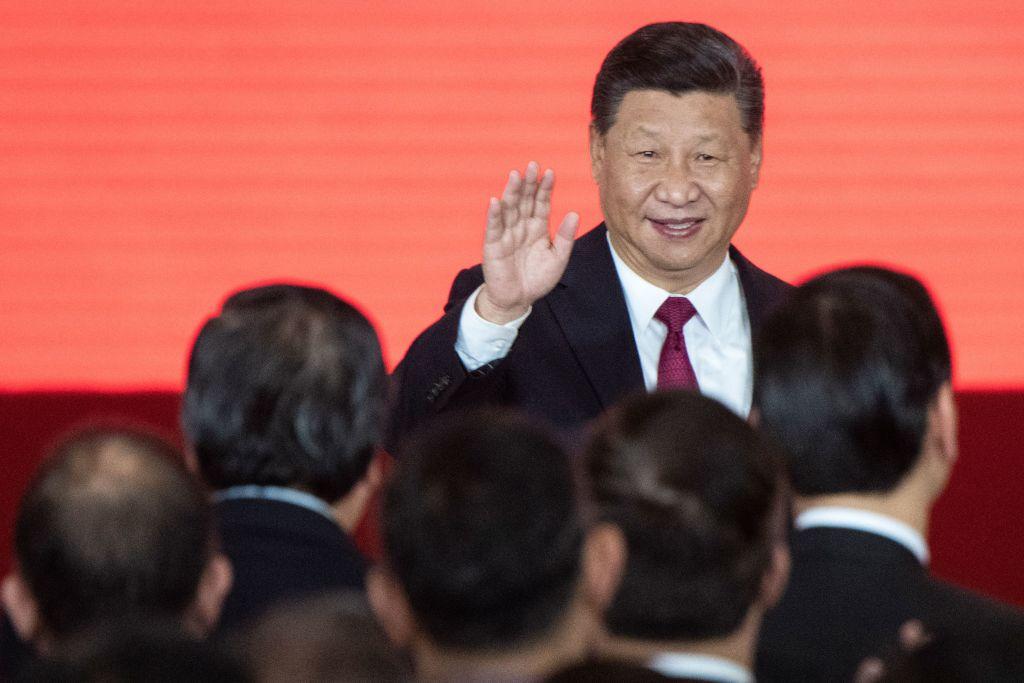Chinese leader Xi Jinping’s comments—and lack thereof—during a tour of southern China hint at the Beijing leadership’s anxieties about the current state of the country’s economy.
During the opening ceremony on Oct. 23 for a bridge connecting Hong Kong, Macau, and the southern Chinese city of Zhuhai in Guangdong Province—the world’s longest sea bridge—several Chinese officials gave speeches, including Li Xi, a member of the Chinese Communist Party’s (CCP) elite 25-member Politburo and party chief of Guangdong; Han Zheng, a member of the Politburo Standing Committee, the Party’s most powerful decision-making body; Carrie Lam, head of Hong Kong’s government; and Fernando Chui, head of Macau’s government, according to an Oct. 23 report by China’s state-run media Xinhua.
But when it came time for Xi to formally announce the bridge’s opening, he simply stepped to the podium and said: “I pronounce, the Hong Kong-Zhuhai-Macao bridge is officially open.” He didn’t give a speech, as was expected.
Construction of the bridge, 55 kilometers (about 34 miles) in length, began in December 2009. It is part of Beijing’s plans to make the Pearl River Delta region an economic hub similar to the San Francisco Bay in the United States, or Tokyo Bay in Japan.
Economic Woes
Hong Kong-based political analyst Johnny Lau, in an interview with BBC, said that Xi was terse with his comments because Xi is stuck in a difficult political situation: He couldn’t comment on the current trade war—because if his comments were too fierce, the United States might respond, and if his comments were too euphemistic, citizens inside China might lose confidence in his leadership.
The event was part of Xi’s tour of southern China, the second time he’s embarked on such a trip since becoming head of the CCP in 2012. These southern tours come with great political implication: They are widely considered a replica of former Party leader Deng Xiaoping’s famous tour to Guangdong in 1992—a critical point in Chinese history that marked Beijing’s commitment to economic reform policies, initiated in 1978, to open up the country to foreign businesses and investment.
Xi’s trip in December 2012 was seen as the Party leader’s message that economic reform was at top of his agenda, given that he paid tribute to Deng’s statue in Shenzhen City, an economic hub that served as the Party’s first experimental grounds for market reforms.
But with the Chinese economy recently performing badly, Xi may have conducted the tour to quell growing anxiety among the country’s economic sectors. China posted the slowest GDP growth—6.5 percent for the third quarter—in nine years, according to China’s National Bureau of Statistics’s latest numbers on Oct. 19.
China’s stock market is also slumping. The Shanghai Composite Index, already the worst performer among the world’s major benchmarks in 2018, fell recently to its lowest point since 2014.





